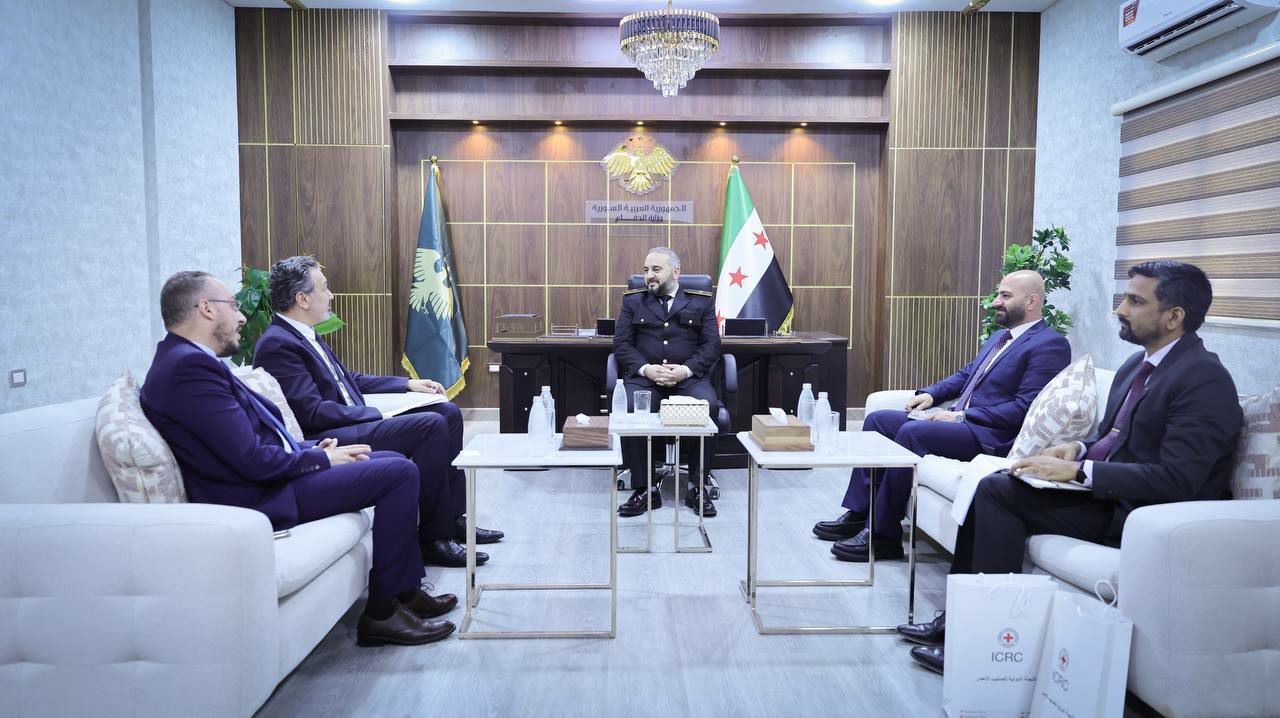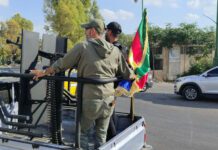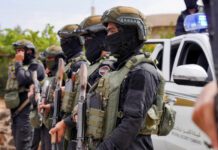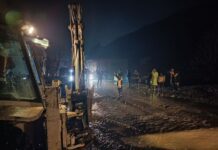
Armed militias, which some allege are loyal to Druze cleric Hikmat al-Hijri, are tightening a de-facto blockade on Suwayda, worsening a humanitarian crisis in the beleaguered governorate by attacking aid convoys, abducting relief workers and looting supplies meant for civilians, according to residents and humanitarian organizations.
In a video posted on X, a local resident accused Hijri’s forces of diverting aid for resale at inflated prices, leaving some families empty-handed while others receive multiple packages. He warned that without transparency in distribution, public outcry against local factions may result. He described a province fractured by rivalry and corruption, where militias exploit divisions to maintain control.
Government and Red Cross Push to Deliver Aid
Despite repeated assaults, the Syrian government has sent daily convoys through the Busra al-Sham corridor, carrying flour, food baskets, medical supplies and fuel for essential services. These operations are coordinated with the Syrian Arab Red Crescent (SARC), the International Committee of the Red Cross (ICRC), the UN, and other partners.
August 8, Defense Minister Marhaf Abu Qusra met with ICRC head Stefan Sakalian in Damascus to strengthen cooperation and facilitate humanitarian operations. The ICRC has pledged to continue working with Syrian authorities to address urgent needs, support hospitals, and restore basic services in the province.
Still, the effort faces violent resistance. On the 8th, a SARC convoy came under direct fire in southern Syria, damaging several vehicles. “We are a neutral organization whose goal is to support the most vulnerable,” SARC said in a statement, calling on all sides to stop targeting its teams.
Aid Workers Abducted in Escalating Violence
The blockade has been compounded by attacks on humanitarian personnel. July 16, White Helmets official Hamza al-Amareen was abducted while responding to a UN evacuation request in Suwayda. Armed men intercepted his clearly marked vehicle and took him to an unknown location. The group has since demanded his immediate release, warning that targeting aid workers “is a grave violation that threatens life-saving operations.”
The Syrian Future Movement, alongside the Syrian government and other international humanitarian organizations has condemned such acts, urging community leaders in Suwayda to pressure armed groups to release detainees and uphold the region’s traditions of protecting civilians and humanitarian work.
Dire Conditions Inside the Blockaded City
According to ICRC spokesperson Suhair Zakout, southern Syria has more than 170,000 displaced people housed in 84 shelters, mostly in Daraa. She said the city endured two weeks cut off from food, electricity, and water, with hospitals overwhelmed and morgues overfilled.
While recent ceasefires have allowed limited aid deliveries, armed factions continue to obstruct humanitarian access. Zakout welcomed the government’s daily convoys but stressed that “a return to normal life cannot be achieved with humanitarian aid alone” and that the restoration of essential services is critical.
For now, Suwayda remains trapped between the government’s effort to supply it and militias determined to control or block the flow of relief as a means of exerting control and influence.








